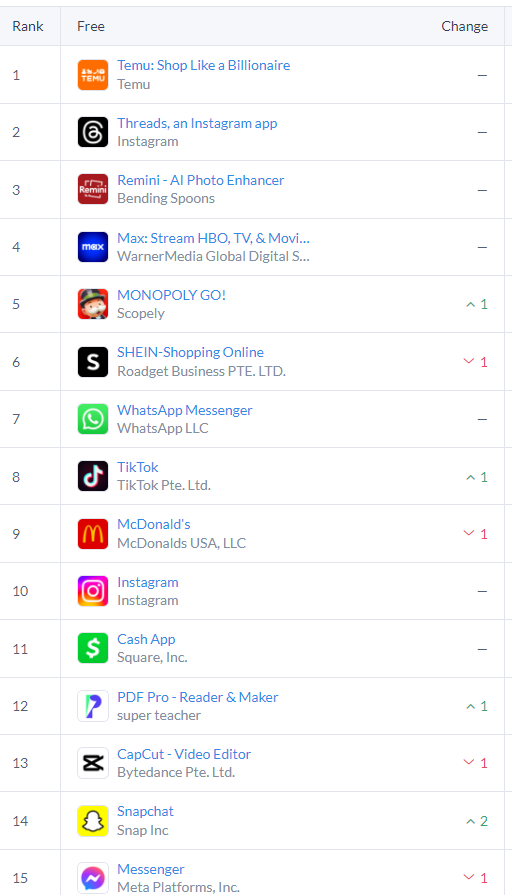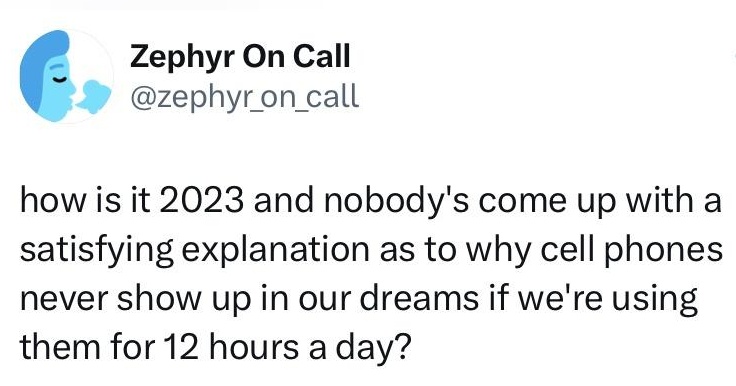Good Monday Morning
It’s August 28th. Spotlight is off next week for Labor Day. Enjoy your long weekend plans.
Today’s Spotlight is 1,254 words — about 4 1/2 minutes to read.
3 Stories to Know
1. Test Scores Shared: Gizmodo reports that the College Board testing service shares SAT scores and GPAs with Facebook and TikTok via advertising tracking pixels. The College Board later confirmed the practice but denied sharing personally identifiable information, a common digital advertising practice.
2.Hackers Selling Info: Personal information is available for sale according to 404 Media which reported that hackers are using Telegram to sell credit header files for $15 per person. The data, sourced from credit bureaus, is advertised in criminal chat rooms for illicit activities including swatting and violence.
3. EU Targets Tech: The EU’s Digital Services Act (DSA) imposes new regulations on the 19 biggest tech companies with over 45 million monthly users in the EU. The DSA mandates the removal of posts containing illegal goods and bans targeted advertising based on sexual orientation, religion, ethnicity, or political beliefs. Noncompliance risks fines of up to 6% of global revenue.
Clarifying facial recognition: Last week, we reported on six nonwhite people wrongfully arrested solely due to facial recognition. At least two were jailed for up to one week. While the technology can and should initiate investigations, it shouldn’t be the sole basis for arrest as it was in those cases.

Spotlight on Politics Online: What’s Changing
Legal, technological, and social shifts have significantly changed the online political landscape since 2020.
1. Tech Trying to Protect Against Disinformation
Recent lawsuits have put tech giants Google and YouTube, both subsidiaries of Alphabet Inc., under scrutiny. Presidential candidate Robert F. Kennedy, Jr., filed a lawsuit against YouTube, accusing the platform of censoring his content that questions the safety of vaccines. Research has identified Kennedy as one of the nation’s top sources of vaccine disinformation.
Meanwhile, the Republican National Committee (RNC) sued Google, alleging that the search engine’s email system was suppressing conservative voices. A judge recently dismissed the RNC’s claims, stating that there was insufficient evidence to support the allegations of bias.
2. AI and Political Bias
Allegations of political bias in AI technologies like ChatGPT have sparked considerable debate A recent study by Mandiant, a U.S. cyber firm owned by Google, reveals that AI is increasingly being used in online influence campaigns.
The study found that while AI can amplify messages and target audiences more effectively, its impact on changing public opinion is limited. These findings raise reasonable questions about the technology’s impartiality and ethical use. The involvement of Alphabet-owned entities in platform control, legal defenses, and research studies underscores the expansive influence of major tech players in shaping this discourse.
3. The Importance of Academia
The Australian Christian Lobby (ACL) has been vocal in opposing a bill toughening social media speech requirements in that country by claiming it poses a threat to religious freedom. However, that organization has been implicated in a misinformation campaign targeting the Labor Party by posting false narratives to influence public opinion. This incident underscores the global challenges of combating digital misinformation and the need for effective countermeasures.
Meanwhile, in the U.S., Joan Donovan, a leading expert on media manipulation and disinformation, was recently forced to leave her role at Harvard’s Shorenstein Center. Her departure came after administrative decisions ended her Technology and Social Change project. Donovan’s work has been a cornerstone in the study of online misinformation and has influenced both policy and platform moderation.
Her forced exit from Harvard raises questions about the future of academic research in this critical area, emphasizing the need for scholarly engagement to combat misinformation effectively.
4. Meta Wants Fewer Political Posts
Meta’s Threads platform is taking steps to foster a friendlier online environment. By downgrading news and politics in its feed, the platform aims to create a space where users can connect and engage without the constant influx of divisive content.
This aligns with recent Pew Research findings that reveal Americans’ differing views on the impact of social media on U.S. democracy. The research underscores our deep ideological divide and highlights the evolving landscape of online discourse. There will be continuing changes as next year’s presidential election cycle gathers steam, and we’ll share that news as it happens.
Practical AI
Quotable: “AI builders are using Hugging Face all day, every day … Maybe in five years, you’re going to have like 100 million AI builders. And if all of them use Hugging Face all day, every day, we’ll obviously be in a good position.”
—Clement Delangue, Hugging Face CEO, whose company raised $235 million last week at a $4.5 billion valuation.
AI Books Flood Amazon: People are posting books for sale on Amazon that have been authored by generative AI. Biggest issues: they’re often inaccurate, cannibalize sales of human-written works, and can even falsely be identified as being written by well-known authors.
Tool of the Week: Hugging Face’s AutoTrain helps you train an AI model to learn a task. If you’re dabbling in machine learning, this no-code tool is a fine starting point.
Trends, Spends & TikTok



Did That Really Happen — Dodger Stadium & Ted Cruz’s Shark
Flooding in Southern California led to many inaccurate claims. One viral photograph showed what appeared to be a flooded Dodger Stadium. A spokesperson said that the photo was an unfortunate optical illusion and that some areas of the stadium had pooled water of “maybe one inch.”
Another viral photo, an 18-year-old image of a shark superimposed on a highway, was retweeted by Sen. Ted Cruz (R-TX). Despite being told the photo was a hoax, Cruz refused to delete it and wrote, “In LA, you never know …” before expressing a hope that people stayed safe.
Following Up — Revenge (Fake) Porn
We wrote last week about a Houston jury awarding more than $1 billion in damages to a woman who was the victim of explicit photos of her being released without her permission.
Now there are details about a program that easily allows non-technical users to easily substitute faces into extreme porn images–using photos non-consensually scraped from online sources. Access to the very NSFW site is only $4 per month and the site’s owners claim a half-million users. (404 Media article – extreme language)
Protip — Gmail Templates
Gmail templates are one of my favorite time-savers. This ZD Net feature shows you how to set up your own.
Screening Room — Apple Helping Fit Animal Prosthetics
Science Fiction World — Our Mars Lander Filmed Our Mars Helicopter
That would be Perseverance filming Ingenuity’s 54th flight on Mars for National Aviation Day. You can see the flight too–it lasts under one minute, which doesn’t sound impressive until you realize IT’S ON ANOTHER PLANET.
Coffee Break — The Never-Ending Password Change
You won’t get as far as you think you might in Neal Agarwal’s latest interactive, the Password Game. There are allegedly 35 steps. One day I hope to make it past the teens.
Sign of the Times











